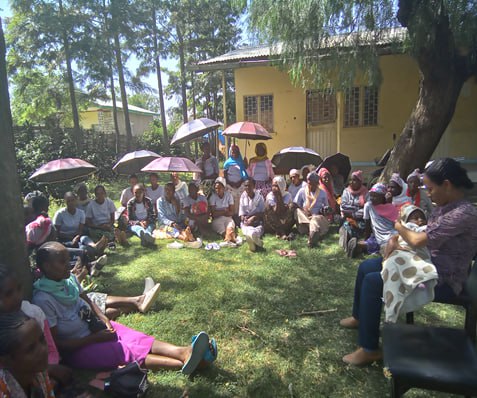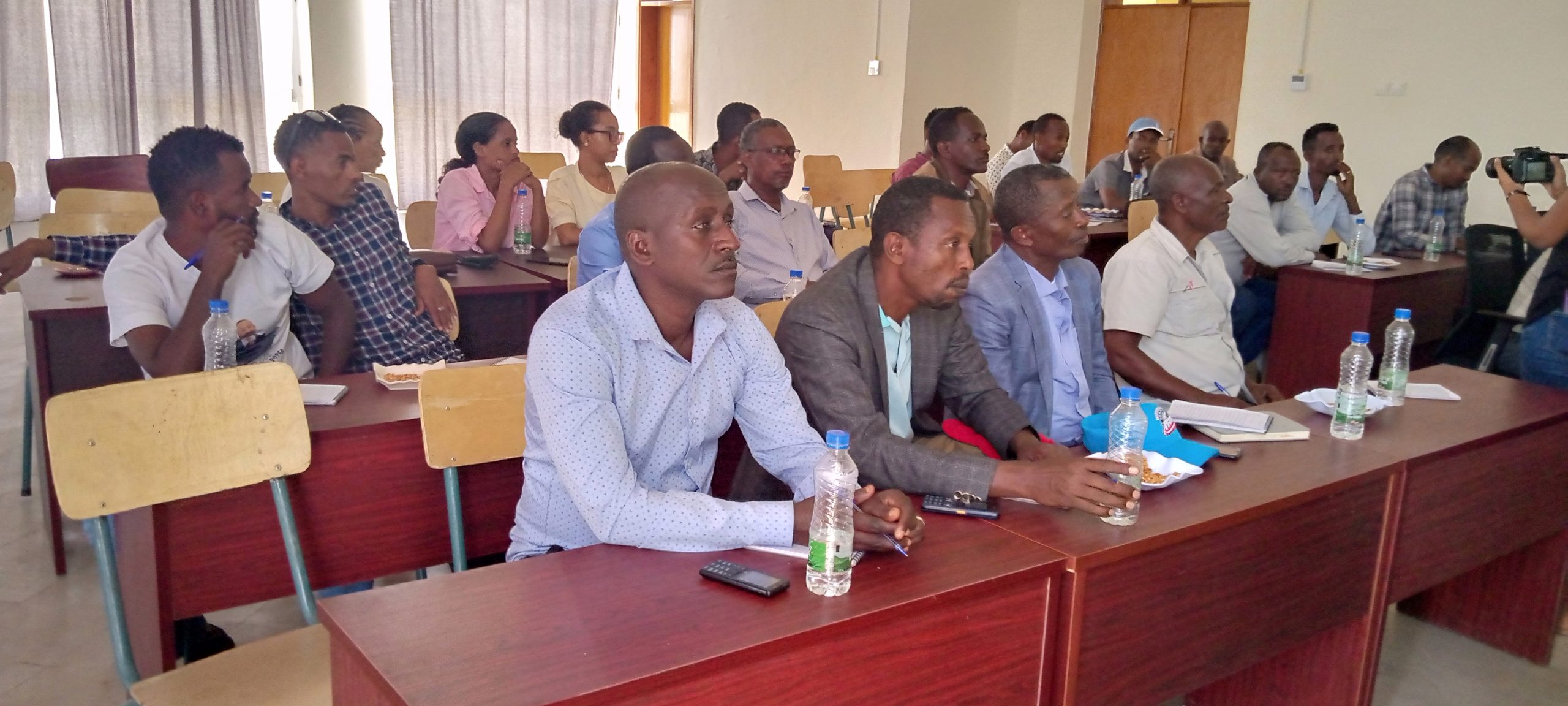 Some participants at the 2024 Annual Scientific Conference at Arba Minch University. The program is listed below.
Some participants at the 2024 Annual Scientific Conference at Arba Minch University. The program is listed below.
Category Archives: RCT
Cluster randomized controlled trial to improve maternal and newborn healthcare in Sidama
Pre-print of Research protocol:
This is the pre-print of the protocol for the research group on Neonatal and Maternal Health
Achamyelesh Gebretsadik, Yemisrach Shiferaw, Hirut Gemeda, Yaliso Yaya. Cluster randomized controlled trial to assess the effectiveness of a package of community-based intervention on continuum of maternal and newborn healthcare in Sidama, Ethiopia: The SiMaNeH trial protocol. medRxiv preprint doi: https://doi.org/10.1101/2024.09.01.24312899
Background: Maternal and newborn mortality and morbidity remain high in low- and middle-income countries such as Ethiopia. Limited access and dropouts from essential continuum of care interventions are critical factors. In Ethiopia about one in five complete the continuum of essential care through pregnancy, childbirth, and postnatal period Ethiopia. Evidence is limited on whether a package of interventions involving key community health actors increase the proportion completing essential maternal and newborn healthcare continuum in rural Sidama regional state, Ethiopia.
Objective: This study aims to implement and evaluate the effectiveness of community-based interventions designed to enhance involvement of key community health actors to improve completion rate of continuum of maternal care and utilization of newborn care.
Methods: Twenty rural kebeles (clusters) in Sidama Regional State, Ethiopia, are randomly allocated to intervention and control arms. A total of 2000 pregnant women, 1000 per arm, will be recruited between 20th and 26th week of gestation after intervention. Then they will be followed until six weeks postpartum between June 2024 and February 2025. In the intervention arm, mothers and newborns will receive targeted interventions at home and in their community through a package of interventions designed to improve completion rate of recommended maternal and newborn care. Control clusters will receive normal care from the state public health system. Primary outcomes will be the difference in the completion of continuum of maternal care and essential and emergency newborn care between intervention and control clusters measured by composite indicator constructed from variables. Secondary outcomes include rates of antenatal care completion, facility deliveries with skilled care, completion of at least four postnatal care, essential newborn care, and emergency identification and referrals, mortality measures.
Conclusion: This trial will implement and evaluate community-based intervention package within existing community healthcare infrastructure to produce evidence for informed policy and practice to achieve improved community-based healthcare.
Strengthening neonatal and maternal health
 The maternal and neonatal research team aims to improve the quality of care for mothers and newborns within the community. The team collaborates with community health workers and health development teams, directly influencing the local health system.
The maternal and neonatal research team aims to improve the quality of care for mothers and newborns within the community. The team collaborates with community health workers and health development teams, directly influencing the local health system.
The photo illustrates a training session conducted by members of the maternal and neonatal research team and health extension workers for the health development teams residing in the Gala Argiso kebele in the Sidama region of Ethiopia. These health development teams are volunteers dedicated to addressing maternal and newborn health issues at the grassroots level. Additionally, it seeks to educate mothers on self-care practices during pregnancy and postpartum and guide them on when to seek medical attention for health concerns.
Scientific conference for Master’s and PhD students
From November 8 to 10, we had a scientific conference for masters and PhD students at Hawassa University. Participants were students from the universities in both Hawassa and Arba Minch. Altogether, 28 students presented their research.
The rationale for such an annual event is to have a high-quality conference where students get scientific feedback on their presentations.
Malaria prevention trial in Arba Minch has been registered
Malaria and other vector-borne diseases most affect low-income people living in poorly constructed houses and poorly managed environments. A recent review on housing and vector-borne diseases indicates that housing improvement protects people against malaria and dengue infection. Our previous studies on housing intervention reduced the indoor density of vectors and malaria incidence. Interestingly, improved housing protects everybody inside the house, can easily be integrated with existing interventions, reduces exposure to pollutants, and can improve indoor ventilation. To this end, the housing intervention we consider the pushing factor (diverting mosquitoes away from where people live) is supplemented by interventions that attract mosquitoes (pulling factors). Ivermectin is widely used to control endo- and ectoparasites of animals and treatment of filarial nematode parasites of humans. Several studies have also shown the efficacy of ivermectin against malaria vectors.
Although there is evidence of the cost-effectiveness of house screening intervention against malaria, combining house screening with Ivermectin cattle care still needs to be determined. We hypothesise that these novel push-pull malaria control interventions can make a measurable change in malaria incidence, the indoor and outdoor density of malaria vectors, and human exposure, reducing household poverty due to less sickness.
The primary objective of this trial is to determine whether house screening and ivermectin administration to households with cattle reduce malaria incidence among all age groups compared to the groups using conventional malaria control tools. The primary outcome variable of the study will be the incidence of malaria among all age groups in intervention groups compared with the control arm. Epidemiologic and serologic endpoints will be measured by screening study participants every four months for two consecutive years.
Furthermore, a bimonthly entomological assessment will be done in each arm for two years. We shall also measure human exposure to mosquito bites and malaria parasites by assessing serological markers and the entomological indices of malaria. The interventions’ durability, community acceptance, and cost-effectiveness will be considered. Multidimensional household poverty reduction due to malaria intervention will be evaluated.
Registration for the trial is at The Pan African Clinical Trials Registry (PACTR) with registration number PACTR202306667462566
Start of malaria prevetion trial in Arba Minch
A few days ago, the Malaria research group in Arba Minch met with the official community leaders. They had a stimulating conversation with the chairman and officials of 14 kebeles, representatives from the two district agricultural and human health offices, officials from the zonal health and agriculture department, and managers of the health centres. There were 23 people present during the meeting. The leaders advised that further consultations should include neighbourhood organisations and religious leaders, which will be done in the coming weeks.
